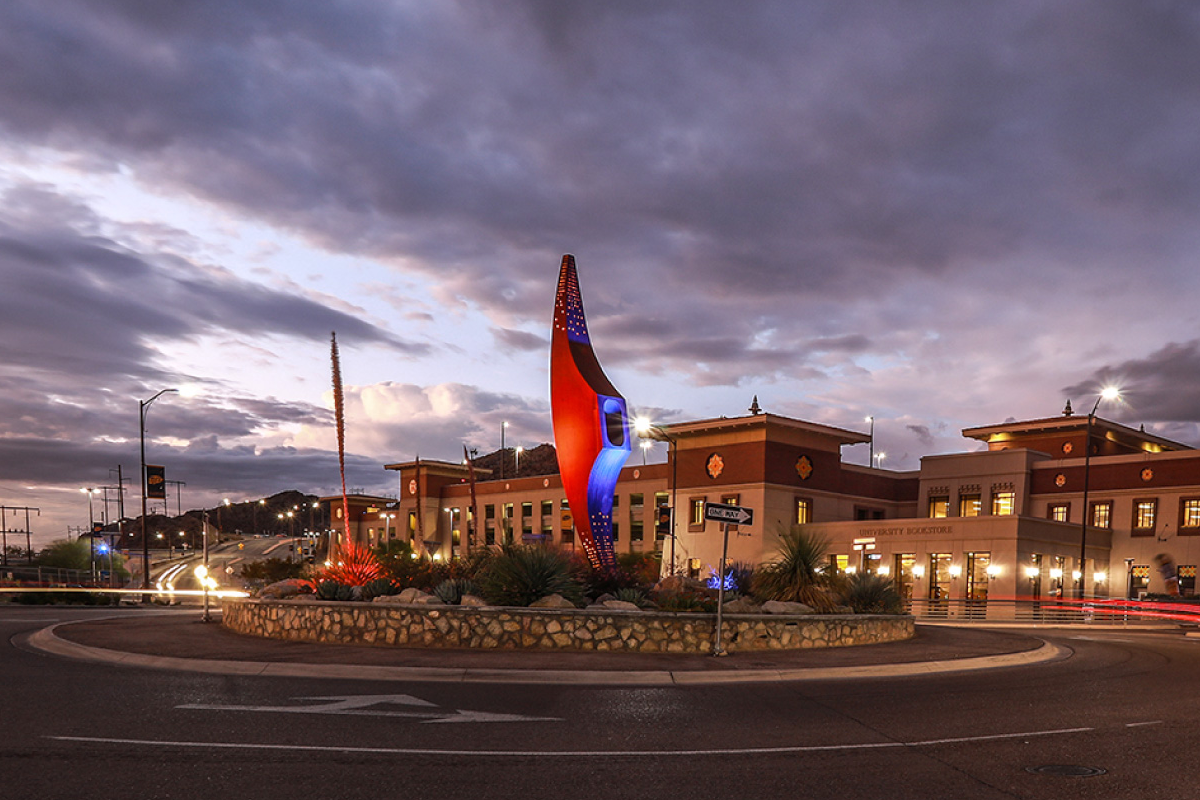
MinerAlert

MinerAlert

It’s impossible to water down UTEP alumna Irazema Rojas’s accomplishments.
As the chief technical officer for water, wastewater and reclaimed water at El Paso Water, Rojas is helping to build a more sustainable future while ensuring El Pasoans far and wide have access to clean water and sanitation – all while building a more diverse and inclusive engineering workforce through her work recruiting students at UTEP, America’s leading Hispanic-Serving university. As the 2023 College of Engineering Gold Nugget awardee, she exemplifies what it means to be a UTEP alumna.
“Irazema Rojas has had an impressive career as a civil engineer,” said Kenith Meissner, dean of the College of Engineering. “As this year’s Gold Nugget, she is a wonderful role model for future generations of students, particulary Hispanic and female students.”
Rojas has built a robust career of over 25 years in water management. Overseeing six departments and a $500 million budget, she is responsible for guiding her team to success with hundreds of projects, including water management, environmental stewardship, community growth and the rehabilitation of aging infrastructure. But her career began at UTEP, where she graduated with both her bachelor’s and master’s degrees in civil engineering, in 1995 and 2010 respectively.
As a student, she held her first job with UTEP’s Center for Inter-American and Border Studies. She then worked with UTEP’s tutoring center before being hired for the first ever AmeriCorps project at UTEP, held in partnership with the Texas Natural Resources Conservation Commission.
“They had us GPSing well sites as part of that project,” Rojas said, which refers to locating and mapping water well sites in a general region. The team put together a geographic information system database documenting the location and conditions of well sites in the area. They also assisted with environmental cleanups and other community and environmental work. “We got to do a lot of fieldwork for them.”
Not only did this opportunity set the foundation for her work in environmentalism, it also connected her with opportunities to expand her studies in graduate school.
“I received a stipend from this project to continue with my master’s,” Rojas said. “I also received a fellowship with the Dwight David Eisenhower Transportation Fellowship Program and the Department of Transportation to continue my studies.”
Rojas is proud to work in a field that is so vital to ensuring communities across the globe thrive.
“Clean water and sanitation are something we’ll always need,” Rojas said. “My career has put me at a level that allows me to make an impact and stay relevant. And I am most proud to be able to provide for my family.”
As a child, Rojas described herself as a doer. In school, her strong suit was math, and she often found herself building things. Growing up, she frequently heard about the need to protect the Earth’s ozone layer on the news. When she would play make-believe with a close friend, she always embodied the role of the environmentalist, and he would play the newscaster. The two of them would create dialogue about this, as if she were a scientist being interviewed on the news about how to protect the environment.
“I grew up to be a civil engineer, and now my childhood friend is a TV host,” Rojas said. “We just knew.”
Though Rojas knew what she wanted her career to embody – math, science and supporting her community through environmentalism – she didn’t learn what a civil engineer was until she was teenager. While on vacation at a relative’s house, her eldest cousin began to ask her what she wanted to do when she grew up.
“He asked me about my career plans in-depth, which was so strange for me as a teenager,” Rojas said. “I told him I knew I wanted to build things, help the community and effect change. He said, ‘There’s actually a field for that: civil engineering.’ I was sold.”
As a civil engineer with years of success under her belt, Rojas has set the stage for women hoping to work in the civil engineering and public works fields.
“We have this term called ‘clearing and grubbing,’” Rojas said. “It means clearing the area of vegetation and weeds and thorns for construction. But I’ve done a lot of that for women in the field. Back in my time, there weren’t as many women engineers. It was very male-dominated. We may have gotten some scrapes and thorns along the way, but we are clearing the way for a more female-dominated workforce.”